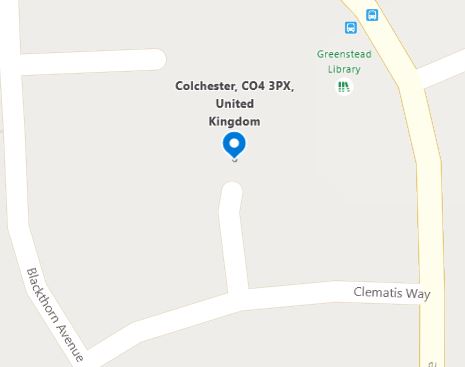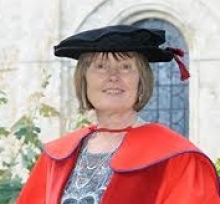Work TV
Watch our TV Channel dedicated to the ‘World of Work’. Explore our video library for informative videos featuring career opportunities at leading companies, franchising opportunities, further education and recruitment professions and their services.
Simon Collyer
Capita Climbdown Should Herald More Sympathetic Approach to Benefit Claimants, Says Union Unite
LEGAL ACTION WITHDRAWN - The climbdown by Capita, which tried to reverse the ‘reputational damage’ it claimed to have suffered after a benefits’ claimant died, should herald a new and more sympathetic way for assessing benefits, Unite, Britain and Ireland’s largest union, said today (Thursday 8 August).
Benefit assessment company Capita has withdrawn its legal challenge, after a campaign by Unite supporting Susan Kemlo, the mother of Victoria Smith, a Unite community member. Victoria died months after her personal independence payments (PIPs) were stopped following a Capita assessment.

Image: Capita responsible for Susan Kemlo's PIP's assesments.
Mrs Kemlo was subsequently awarded £10,410 after legal action against Capita for maladministration – it was this judgment that Capita was trying to overturn until its climbdown today. The money will now be paid to Mrs Kemlo.
In support of Mrs Kemlo, Unite community branch secretary for Stoke and North Staffordshire, Duncan Walker amassed 800 pages of evidence relating to Victoria’s case. Ms Smith from Market Drayton, Shropshire, who had agoraphobia and fibromyalgia, died, aged 33, in July last year.
The climbdown by Capita, which tried to reverse the ‘reputational damage’ it claimed to have suffered after a benefits’ claimant died, should herald a new and more sympathetic way for assessing benefits, Unite, Britain and Ireland’s largest union, said today (Thursday 8 August).
Benefit assessment company Capita has withdrawn its legal challenge, after a campaign by Unite supporting Susan Kemlo, the mother of Victoria Smith, a Unite community member. Victoria died months after her personal independence payments (PIPs) were stopped following a Capita assessment.
Mrs Kemlo was subsequently awarded £10,410 after legal action against Capita for maladministration – it was this judgment that Capita was trying to overturn until its climbdown today. The money will now be paid to Mrs Kemlo.
In support of Mrs Kemlo, Unite community branch secretary for Stoke and North Staffordshire, Duncan Walker amassed 800 pages of evidence relating to Victoria’s case. Ms Smith from Market Drayton, Shropshire, who had agoraphobia and fibromyalgia, died, aged 33, in July last year
Unite head of community Liane Groves said: “Despite the tragic circumstances of Victoria Smith’s case, we hope that Capita and other companies contracted to assess benefit claimants, on behalf of the government, will now adopt a new and more sympathetic approach to assessing claimants.
“Unfortunately, this case is not an isolated incident. Unite Community has an 80 per cent success rate in helping claimants with their PIP appeals. All too often the Department of Work and Pensions (DWP) and the private profit-driven companies that carry out work capability assessments choose to ignore expert medical evidence.
“I would like to pay tribute to Susan Kemlo for the courage and tenacity she has shown in pursuing justice in her daughter’s case – this is a massive victory. We must all now work harder to ensure that what happened to Victoria is never repeated.

Image: DWP minister, Amber Rudd.
“This is the message that Unite is strongly giving to Work and Pensions secretary Amber Rudd, as making a claim for benefits is stressful at the best of times and even worse if you are suffering from life-threatening conditions.
“I would also like to pay tribute to Unite community branch secretary Duncan Walker who gathered 800 pages of evidence relating to our community member Victoria – it was a painstaking and diligent task carried out with dedication and great attention to detail.”
ABC Comment, have your say below:

Colchester Foodbank Volunteer Open Day, Greenstead
COLCHESTER FOODBANK - are running a volunteer open day.
The Foodbank ask would you be interested in finding out more about volunteering with Colchester Foodbank?
The Foodbank are working in Greenstead to bring the foodbank into the community. The Colchester Foodbank want to thank the East of England Co-op and Colchester Credit Union for their support and the Credit Union for hosting this volunteer open day so people can find out about volunteering with the Colchester Foodbank.
Colchester Foodbank hope to see you next Tuesday in Greenstead!
Event details:
Date: Tuesday, 13 August 2019
When: Open day from 10am till noon.
Where: Colchester Credit Union Ltd, 7 The Centre, Hawthorn Avenue, Greenstead, Colchester CO4 3PX
ABC Comment, have your say below:

Horsham District Council Unveils Eight Units of Temporary Accommodation
HORSHAM DISTRICT - Horsham District Council has unveiled a further eight units of temporary accommodation to help residents facing homelessness.
The £1.5million development in North Horsham adds to the 17 units taken on by the Council since September 2017, and demonstrates the Council’s ongoing commitment to provide options to households facing homelessness.
Temporary accommodation also helps to avoid the use of bed and breakfast accommodation wherever possible.
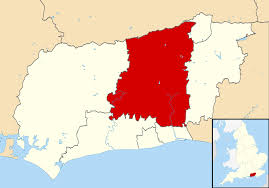
Image: Horsham District.
ABC Comment, have your say below:

Stop “Painful” Hold Up of Improving Our Pensions, Firefighters Say
UK FIREFIGHTERS - The government must stop holding up pension improvements for firefighters and other public sector workers, the Fire Brigades Union (FBU) has said, demanding that the cost of ending discriminatory pension practices does not impact on the valuation of pensions.
A cost-control mechanism, which would have improved public sector pensions, was paused in January, as the Treasury claimed that the cost of remedying discriminatory pension arrangements would impact the pension valuations.
The pause has been imposed on all public service pensions and has withheld improved benefits from hundreds of thousands of workers. The cost of these improvements to pensions was passed on to employers in April, but the benefits to employees are still being withheld.
In December 2018, the ruled that parts of the government’s attacks on firefighter pensions were discriminatory. Following this ruling, the government paused the implementation of improved benefits as it attempted an appeal to the Supreme Court which was denied in June 2019.
In a letter to Rishi Sunak MP, Chief Secretary to the Treasury, the union has demanded an increase in pension benefits and the decoupling of the cost-control mechanism from the FBU’s legal victory on age discrimination. Matt Wrack, FBU general secretary, has also notified the Home Secretary, the First Ministers of Scotland and Wales and the responsible government department in Northern Ireland.
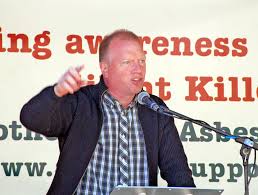
image: Matt Wrack Fire Brigades Union General Secretary.
Matt Wrack, FBU general secretary, said:
“Firefighters and other public sector workers have had their improved benefits withheld for long enough. Younger workers have been discriminated against - ending that discrimination should not prevent improvements to public sector pensions. Our understanding of this is clear – these costs fall outside the valuation exercise. The government is dragging its heels.
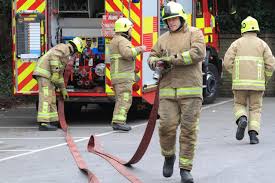
Image: UK Firefighters battle for decent pensions.
“The Supreme Court has denied the government’s appeal. There is no longer any justification for this painful delay. The Treasury must immediately un-pause the pensions remedy process so that hard-working firefighters and other public sector workers can receive the benefits they are owed.”
In 2015, the coalition government carried out a series of attacks on firefighter pensions, with a built-in “transitional protection” proposal which kept older firefighters on better pension schemes while younger members were moved onto a new, worse pension scheme.
The Court of Appeal ruled in December 2018 that this was discriminatory on grounds of age, sex and race. The government has since confirmed that the ruling will be applied across all public sector pensions.
ABC Comment, have your say below:

Worldskills 2019 Competitors Head to The Skills Olympics In Kazan
NORTHERN IRELAND - Four talented competitors were today given a send-off in Belfast before heading to the international WorldSkills competition (known as the Skills Olympics) being held in the Russian city of Kazan.
WorldSkills is the largest international vocational skills competition with more than 70 countries and regions competing in 56 disciplines in a variety of skills areas including Engineering, Hospitality, Professional Services, Construction and Information Technology.
Northern Ireland competitors Conor McKevitt, Curtis Johnston, Declan Porter and Shea McFerran head off to Russia later in the month to compete as part of the Team UK. The delegation is made up of 37 of the very best apprentices and students from across England, Scotland, Wales and Northern Ireland
The WorldSkills Finals in Russia are the 45th in WorldSkills history and are expected to attract over 100,000 visitors. During the last Finals in 2017, which took place in Abu Dhabi, Team UK secured a top 10 position.
Speaking after the event hosted by the Department, Permanent Secretary Noel Lavery said: “Making it onto the UK Team is the culmination of all the hard work, dedication, commitment and technical ability displayed by our four competitors. They should be extremely proud of their efforts and are a credit to their colleges and training providers. I am delighted that Northern Ireland is being represented by such talent. I wish each of them every success as they embark upon this exciting journey and I look forward to following their progress.
“Skills competitions such as these are an excellent opportunity for us to benchmark the professional and technical skills of our competitors with those from around the world. I would encourage anyone who has seen what these young people have achieved, and believe they have what it takes to compete in future skills competitions, to visit the WorldSkills UK page www.worldskillsuk.org for more information.
“For employers who wish to find out more about the range of programmes and assistance aimed at helping employees and future employees to develop their skills and their productivity, there is very useful information available on the Skills to Succeed website: www.nidirect.gov.uk/campaigns/skills-succeed.”
ABC Note: The WorldSkills competition takes place from 22 to 27 August 2019
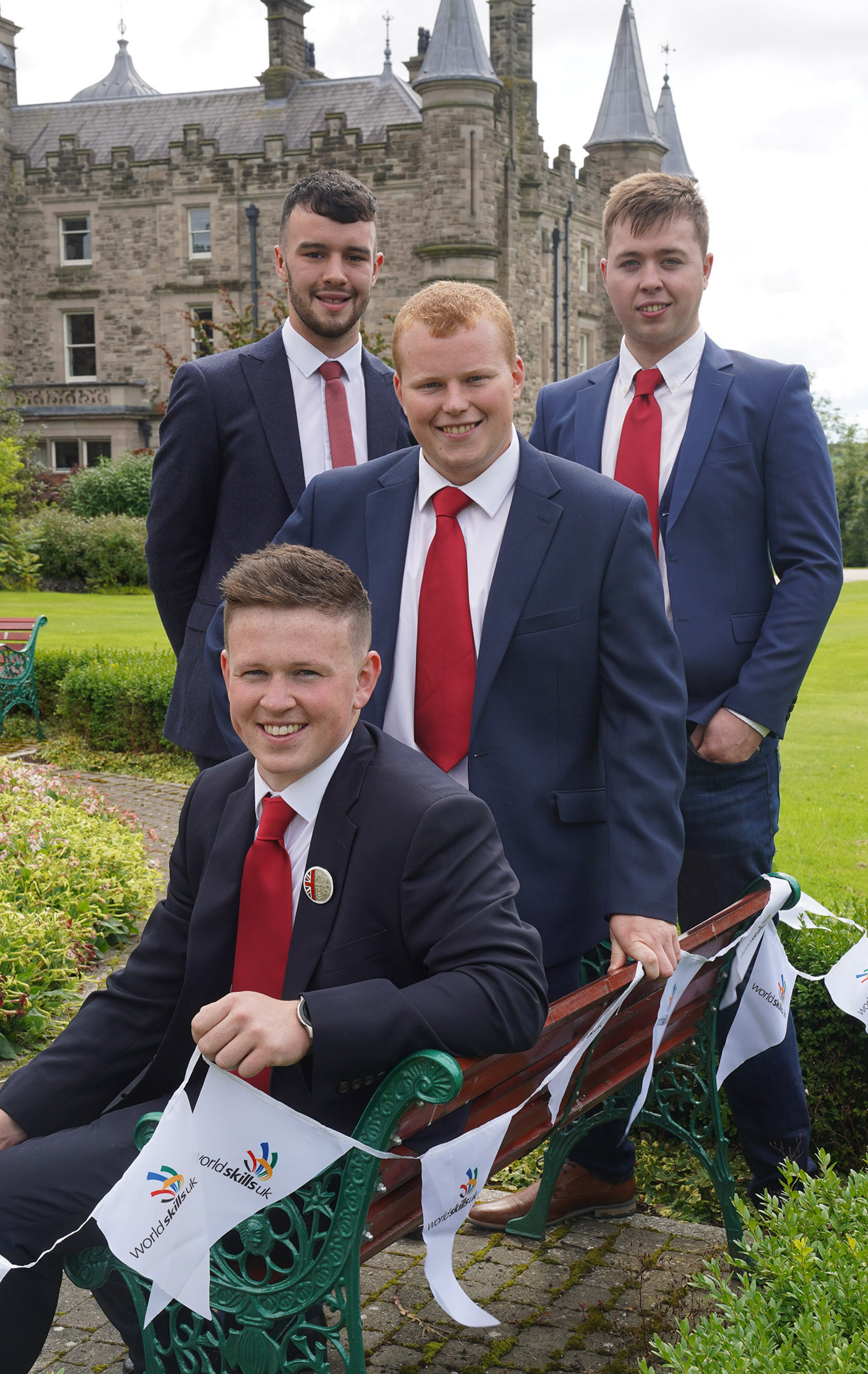
The full list of Northern Ireland competitors in Team UK for WorldSkills 2019 is:
- Conor McKevitt – Automotive Refinishing – Riverpark Training
- Curtis Johnston – Plastering and drywall systems – South Eastern Regional College
- Declan Porter – Automotive Technology – North West Regional College
- Shea McFerran – Landscape Gardening – College of Agriculture, Food and Rural Enterprise
ABC Comment, have your say below:

Access to Work - Grants to Help Disabled People Into Work
ACCESS TO WORK - is a publicly funded employment support programme that aims to help more disabled people start or stay in work. There are two main types of Access to Work provision: ‘Assessments’ and ‘Elements’. Assessments involve exploring workplace-related barriers to employment and making recommendations on how these can be overcome. Elements are intended to supplement the reasonable adjustments that employers are required to make under the Equality Act 2010
If you’re disabled or have a physical or mental health condition that makes it hard for you to do your job, you can:
- talk to your employer about changes they must make in your workplace
- get extra help from Access to Work, including mental health support
An Access to Work grant can pay for:
- special equipment, adaptations or support worker services to help you do things like answer the phone or go to meetings
- help getting to and from work
You might not get a grant if you already get certain benefits.
The money does not have to be paid back and will not affect your other benefits.
What you'll get
You’ll be offered support based on your needs. This may include a grant to help cover the costs of practical support in the workplace, or getting to and from work.
The grant can help pay for items or services you need, including:
- adaptations to the equipment you use
- special equipment or software
British Sign Language interpreters and video relay service support, lip speakers or note takers
- adaptations to your vehicle so you can get to work
- taxi fares to work or a support worker if you cannot use public transport
- a support worker or job coach to help you in your workplace
- disability awareness training for your colleagues
- the cost of moving your equipment if you change location or job
Access to Work can also help assess whether your needs can be met through reasonable adjustments by your employer.
ABC Note: From the NHS - almost half of working-age people with disabilities in the UK are employed – but this figure should be higher. With the right support, many more could join their ranks.
If you have a disability, you may be worried it'll limit your job prospects or you won't be able to find work.
But there's lots of guidance, support and training to help you into employment.
Government-backed schemes can help, while awareness-raising initiatives are challenging the stereotypes about people with disabilities to make sure everyone has a fair chance of working.
The charity Leonard Cheshire Disability runs a scheme called Change100, which brings together the UK's top employers and talented disabled students.
ABC Comment, have your say below:

Home Office Provides “Inadequate and Evasive” Answers Over Controversial Rough Sleeping Support Service
ROUGH SLEEPING -The Home Office has refused to give detailed responses to repeated parliamentary questions from Lib Dem Layla Moran on the Rough Sleeping Support Service, despite the MP tabling multiple follow-up questions in an effort to receive clarification.
The Rough Sleeping Support Service has recently received national attention for its use of data from homelessness and refugee charities to run immigration checks on rough sleepers. Layla has consistently campaigned for a more compassionate approach to be taken to rough sleeping and homelessness in Oxfordshire and nationwide, having led calls for the Vagrancy Act to be scrapped, and opposing Oxford City Council’s homelessness fines.

Image: Layla Moran MP (Lib Dem).
Layla has asked 11 parliamentary questions so far on the issue, with the Government still refusing to provide exact numbers for how many charities and local authorities it has worked with on the scheme.
Despite saying in an answer to one of Moran’s questions that “[t]he service is not an enforcement approach”, the five staff members who operate the RSSS were reassigned “from within Immigration Enforcement” at the Home Office.
Furthermore, the Home Office did not reveal how many cases were referred to and prioritised by the RSSS from elsewhere, nor how many status checks the scheme has conducted, because they “do not form part of the body of published official immigration statistics”.
The department also said that it could not show how many deportations had resulted from information supplied under the RSSS from charities and councils.
Commenting, Layla Moran said:
“These answers from Caroline Nokes were inadequate and evasive.
“The Rough Sleeping Support Service is a continuation of the Government’s hostile environment policy, and I think it says it all that it is being run from within Immigration Enforcement at the Home Office.
“The Home Office argues that this cannot be done with their statistics, but then what is the point of having a scheme where you can’t accurately measure its performance?
“I and the Liberal Democrats demand better. We need to end the hostile environment and take a compassionate approach to rough sleeping and homelessness in our society. That must include scrapping the cruel Vagrancy Act.”
ABC Note: The Rough Sleeping Support Service provides a single point of contact which gives real-time immigration information to local authorities and charities, to help them assess rough sleepers' status and entitlements
The Home Office has provided the following answer to your written parliamentary question (274616):
Question:
To ask the Secretary of State for the Home Department, which charities his Department has consulted in developing the Rough Sleeper Support Service. (274616)
Tabled on: 08 July 2019
This question was grouped with the following question(s) for answer:
To ask the Secretary of State for the Home Department, how many people have been deported from the UK as a result of information supplied by the Rough Sleeper Support Service (a) in the last year and (b) since the programme's inception. (274615)
Tabled on: 08 July 2019
To ask the Secretary of State for the Home Department, how many cases of rough sleeping have been processed in relation to his Department's Rough Sleeper Support Service (a) in the last year and (b) since its inception. (274617)
Tabled on: 08 July 2019
To ask the Secretary of State for the Home Department, how many (a) Border Force and (b) other staff from his Department are assigned to the Rough Sleeper Support Service programme. (274618)
Tabled on: 08 July 2019
To ask the Secretary of State for the Home Department, what estimate he has made of the cost to the public purse of the Rough Sleeper Support Service (a) in the last year and (b) since that programme's inception. (274619)
Tabled on: 08 July 2019

Image: Caroline Fiona Ellen Nokes is a Conservative Party politician in the United Kingdom. She was first elected as the Member of Parliament for Romsey and Southampton North in Hampshire in the 2010 general election. From 2014 to 2015 she was Parliamentary Private Secretary at the Department for Work and Pensions.
Answer:
Caroline Nokes:
The establishment of the Rough Sleeping Support Service (RSSS) was announced as part of the Government’s Rough Sleeping Strategy in August 2018. The RSSS was set up to act as a central point of contact for local authorities to help them to establish the immigration status of non-UK national rough sleepers and for the Home Office to prioritise any outstanding immigration cases, which might unlock entitlement to support and enable them to get off the streets. The service is not an enforcement approach but the Home Office may consider action on a case-by-case basis where individuals have exhausted all other avenues and are unwilling to leave the UK voluntarily. This is in line with existing immigration law.
Removals of non-UK rough sleepers cannot be disaggregated in the published statistics on the removal of those without lawful status. It is also not possible to directly attribute removals to interaction with the RSSS because a range of factors will have affected how decisions were reached in these cases. A person’s removal from the UK is determined by their immigration status and circumstances, including unwillingness to depart voluntarily, not by contact with the RSSS.
The Home Office has engaged with a wide range of local authorities and charities in and outside of London to explain how the RSSS can assist with swift immigration status checks, help those here lawfully to evidence this fact to unlock access to support and assist with those who wish to leave the UK.
Most of the cases referred to the RSSS have been internal referrals from within the Home Office. We have been developing processes to ensure all data sharing with other organisations is fully GDPR-compliant. This includes the requirement to ensure that rough sleepers are advised and informed about the possible use of their information by the Home Office.
The RSSS is a mixed grade team of fewer than five staff, none of whom is from Border Force. It does not undertake any enforcement action. It has an administrative role, conducting status checks, identifying cases for
prioritisation and ensuring that other parts of the Home Office are able to provide assistance to those who require evidence of their lawful status or assistance in leaving the UK.
The Home Office assigned existing staff to the RSSS team and no extra resources were required.
- 2. The Home Office has provided the following answer to your written parliamentary question (277282):
Question:
To ask the Secretary of State for the Home Department, pursuant to the Answer of 8 July 2019 to Question 274618 on the Rough Sleeping Support Service, how many cases the Rough Sleeping Support Service has identified for prioritisation since that programme's launch. (277282)
Tabled on: 15 July 2019
This question was grouped with the following question(s) for answer:
To ask the Secretary of State for the Home Department, pursuant to the Answer of 8 July 2019 to Question 274615, on the Rough Sleeping Support Service (RSSS), how many cases have been referred to the RSSS from (a) the Home Office and (b) external bodies (i) in the last 12 months and (ii) since that programme's launch. (277279)
Tabled on: 15 July 2019
To ask the Secretary of State for the Home Department, pursuant to the Answer of 8 July 2019 to Question 274618, on Rough Sleeping Support Service (RSSS), from which teams in his Department were staff assigned to the RSSS. (277280)
Tabled on: 15 July 2019
To ask the Secretary of State for the Home Department, pursuant to the Answer of 8 July 2019 to Question 274618, on the Rough Sleeping Support Service (RSSS), how many status checks the RSSS team has conducted as part of its administrative duties since that programme's launch. (277281)
Tabled on: 15 July 2019
Answer:
Caroline Nokes:
The requested information on the number of cases referred to and prioritised by the Rough Sleeping Support Service (RSSS) and status checks conducted by the RSSS do not form part of the body of published official immigration statistics and we are unable to release unverified management information.
The team of up to five casework staff were assigned to the RSSS from within Immigration Enforcement.
The answer was submitted on 18 Jul 2019 at 16:39
3. The Home Office has provided the following answer to your written parliamentary question (277283):
Question:
To ask the Secretary of State for the Home Department, pursuant to the Answer of 8 July 2019 to Question 274616 on the Rough Sleeping Support Service, how many (a) charities and (b) local authorities his Department has engaged with as part of the Rough Sleeping Support Service programme since that programme's launch. (277283)
Tabled on: 15 July 2019
This question was grouped with the following question(s) for answer:
To ask the Secretary of State for the Home Department, pursuant to the Answer of 8 July 2019 to Question 274619 on the Rough Sleeping Support Service, what assessment his Department has made of the effect of reassigning his Department's staff to the Rough Sleeping Support Service team on the day-to-day functioning of the teams from which those staff were reassigned. (277284)
Tabled on: 15 July 2019
Answer:
Caroline Nokes:
The Home Office has engaged with a wide range of local authorities and charities in and outside of London to explain how the RSSS can assist with swift immigration status checks, help those here lawfully to evidence this to unlock access to support and assist with those who wish to leave the UK. This engagement has also focused on making sure the service works for those organisations and has included meetings with leading rough sleeping charities and local authorities working to support rough sleepers and informal discussions at homelessness and rough sleeping conferences. Due to the broad and varying nature of the engagement it is difficult to provide an exact figure of the number of organisations involved.
The team of up to five casework staff were assigned to the RSSS from within Immigration Enforcement. Where this transfer involved staff ceasing other duties, the work was absorbed by other teams without impacting the delivery of business.
The answer was submitted on 22 Jul 2019 at 18:03.
ABC Comment, have your say below:

Helping Young People Onto the Housing Ladder
HOUSING - It has never been more challenging for first-time buyers to get on to the property ladder with increasing numbers of young people turning to the ‘Bank of Mum and Dad’.
Parents fund around 25% of mortgage transactions each year. According to The Money Charity, parents provided their children with a staggering £5.7bn in 2018. First-time buyers are now having to find a deposit which equates to around 98% of their average annual salary*.
“There are many ways that relatives can help such as through a loan or a gifted deposit,” says Penny Gordon, head of residential property at leading Ipswich law firm Prettys.
Here Penny outlines a number of ways that parents can help children become homeowners for the first time:
Gifting a deposit
To help your children buy a home, one way to do this would be to gift the deposit to them. The mortgage lender would usually require the donor to sign a declaration that they do not want the money back and that they do not wish to hold any legal or equitable interest in the home.
Gifting or increasing a deposit may also help borrowers to access more competitive mortgage deals.
A gifted deposit would reduce a parent’s estate for inheritance tax purposes and inheritance tax may have to be paid on the gift if the donor dies within seven years of making the gift. A parent wishing to make a gift to a child in this way should seek advice from an estate lawyer first to consider the implications the gift may have on their estate and on any other beneficiaries to their estate.
A Declaration of Trust
A declaration of trust is one way to protect unequal shares when couples co-own a property. If parents have gifted a deposit to their child and a partner it would be advisable for the couple to enter into a declaration of trust to confirm the contribution that each owner has made to the purchase of the property.
This would ensure that it was clear from the outset, that in the event the couple separate, the gifted deposit percentage share of the equitable interest in the property would return to the child in the first instance. In this way the parent’s gift will remain with their child and not the partner or cohabitee.
How to protect yourself if you make a loan to your child
Parents can lend their children the money to buy a property in place of a mortgage lender.
A loan from a parent to a child may be known as a ‘private loan’ and can be protected in the same way as a commercial loan, otherwise known as a ‘charge’, by way of secured charge on the legal title for the property.
A loan agreement containing all the terms of the loan should be drawn up and incorporated into a Land Registry form to be registered on the title of the property by way of ‘secured charge.’
If a parent chooses to make a loan to their child this would not impact their own estate, as in the case of a gifted deposit.
If the parent does not wish to secure their loan on the property an alternative method of protection would be a declaration of trust declaring the ownership of the equitable title.
The declaration of trust can be protected by way of a restriction registered on the title for the property. The restriction would be the notification that there is a trust of land behind the legal title but the details of the trust would not be noted on the public register.
Help children set up a Help to Buy ISA
To qualify for the government’s Help to Buy ISA scheme you must be 16 or over, have a valid National Insurance number and be a UK resident. You must also be a first-time buyer and not own a property anywhere in the world. You cannot have another active ISA in the same tax year.
The scheme is closing on the 30 November 2019. If you have an open account prior to this date you will be able to continue saving but you must claim your bonus by 30 December 2030.
The maximum amount the Government will give you is £3000 so the most you can save in a Help to Buy ISA is £12,000. The minimum amount you need to qualify for a payment is £1600 which would give you a payment of £400. You can save up to £200 per month with an initial deposit into your account of £1200. The Government will give you £50 for every £200 that you save representing a 25% top up to your savings.
Parents and grandparents can assist their children with contributions towards their savings helping to give them the best chance possible and building a deposit for their first home.
Help to Buy Equity Loan
A Help to Buy Loan would enable a young person to purchase a property with a 5% deposit. The Government would top this up with a loan amounting to 20% of the property value which would be interest free for five years. Therefore your child would only need a mortgage of 75%.
This scheme is only available on new build homes up to a value of £600,000 in England, £300,000 in Wales and £200,000 in Scotland. This initiative is due to end in 2021.
Discuss finance with children from an early age
Encouraging children to save from an early age and have their own bank account is a positive starting point for them for healthy money management. Children can save birthday and Christmas present money which can easily mount up over the years. A trip with mum, dad, grandma or grandad to the bank to pay money into their own accounts and watching it increase will help to give children the best financial start in life as well as building fond family memories.
Talk to your children with honest, practical advice about finances and buying a property, ensuring that children understand from an early age, as best they can, about the cost of living and encouraging them to save will help them on their way to owning their own home. You can be creative in how you do this dependent on the child’s age.
Chatting about savings from an early age and good money management is important.

Image: Climbing on the housing ladder is very difficult.
ABC Note: Looking at a job and need to know what you would earn after tax. We use this excellent salary calculator. PLEASE click on the link below:
ABC Comments, have your say below:

August 26 Summer Bank Holiday Benefit Payment Dates
SUMMER BANK HOLIDAY 2019 (England, Wales and Northern Ireland only) is Monday, August 26.
This may cause some disruption benefit payment wise.
Tax Credits
This payment is made every week or every four weeks.
Instead of being paid on Monday, August 26, the payment is due instead on Friday, August 23.
If the payment is late, check the date on your award notice and contact your bank before getting in touch with HMRC.
However, banks will most likely have restricted customer service hours on bank holidays.
Child Benefit
Child Benefit is usually paid every four weeks on a Monday or Tuesday.
The payment would be due on August 26, but will instead be paid on Friday, August 23.
Universal Credit
Universal Credit, which is replacing benefits in stages across the UK, is paid once a month.
Like other benefits, if your payment would usually fall on Monday, August 26, you will be paid on the working day before, which is Friday, August 23.
If you don't receive your payment
It's advised to contact your bank firstly, however if you do need to get in touch with Universal Credit, these are the free numbers to contact.
They are closed on Monday, August 26.
Universal Credit live service: 0800 328 9344 (this replaces 0345 600 0723)
Universal Credit full service: 0800 328 5644 (this replaces 0345 600 4272)
Textphone for those with hearing problems: 0800 328 1344
Call between 8am and 6pm, Monday to Friday (closed on bank holidays).
ABC Comment, have your say below:

Liz Sayce OBE Is Being Appointed Interim Chair of The Social Security Advisory Committee (SSAC)
LONDON - Professor Sir Ian Diamond is standing down as the chair of the Social Security Advisory Committee (SSAC) following his appointment as the National Statistician of the UK Statistics Authority, a full-time role. A recruitment exercise to appoint Sir Ian’s successor will commence in the near future. In the meantime Liz Sayce, who is vice chair of the Committee, has been appointed as interim chair from 1 September 2019.
Secretary of State for Work and Pensions Amber Rudd said:
I am grateful to Sir Ian for his contribution to the committee’s work over the past year and wish him every success in the future.
I am pleased that Liz Sayce has agreed to take on this post on an interim basis. Liz brings a wealth of relevant skills and experience to the role, and I look forward to working with her.
Liz Sayce OBE biography
Liz was the Chief Executive of Disability Rights UK until 31 May 2017, leading work to achieve equal participation for all through programmes on independent living, career opportunities and shifts in cultural attitudes and behaviour. With a background in mental health and disability policy, her previous roles include:
Director of Policy and Communications at the Disability Rights Commission
Policy Director of Mind
Liz led an independent review into disability employment programmes for government in 2011 and has published widely on mental health, disability and social participation.
Liz is also:
- a non-executive board member of the Care Quality Commission
- a member of the committee of Healthwatch England
- a member of the Disability Advisory Committee of the Equality and Human Rights Commission
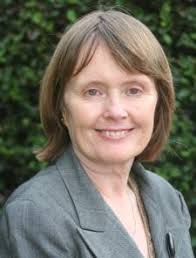
Image: Liz Sayce OBE.
ABC Comment, have your say below:




